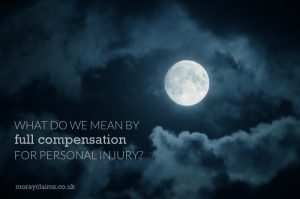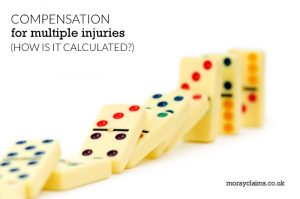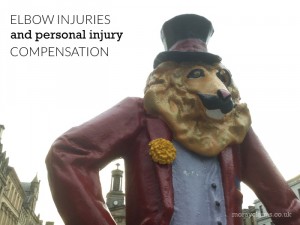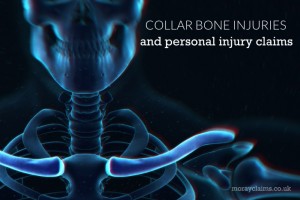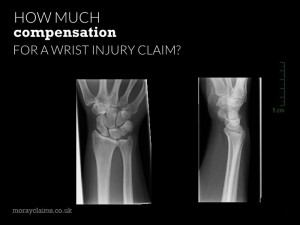Where there is a personal injury claim arising out of a road traffic accident, there is often a claim for damage to a car as well. As we have discussed elsewhere, claims for damage to vehicles will be valued on the basis of the lower of: the cost of repairs; and the net pre-accident value of the vehicle (in other words, the pre-accident value of the vehicle, less any scrap value). Another way of putting it is to say that, if the cost of repairing your vehicle will be “too high” relative to its value, the maximum you will get for it will be its net pre-accident value. What if your car was very new when it was damaged? In that case, while it may be economical to repair the vehicle, you might well feel that your repaired vehicle - even if it has been very well repaired – has lost value compared to what it would have been worth for resale if it had not been in an accident at all. It’s an interesting question: whether the owner of a car which is damaged in a road traffic Continue Reading
Articles from our blog on the Claims Process
Below are articles from our blog which relate to the topic of the Claims Process.
Please also see our main page on the Claims Process
How does your solicitor negotiate your personal injury claim with the insurers?
We got some questions from a client about the general issues which arise when you're negotiating a personal injury claim with an insurance company. An article seemed like a good way to bring these answers to a wider audience. (Note that we have also based a podcast on these same questions - go here if you would prefer to listen rather than read). We're talking about the stage in a claim where liability has been admitted and it's about maximising the settlement figure with the insurers. The hope is that it will be possible to agree a figure by negotiation but, in the background, there's always the possibility that you might need to raise a court action to achieve a reasonable level of compensation. What tactics and strategies apply here? Do we have to show our hand first rather than let the insurer make an initial offer? This is generally the way it is done. Claims in Scotland are most often negotiated according to a pre-action protocol - basically, an agreement between Continue Reading
When you should get help from an Advocate with your personal injury claim
In November 2017, Formula One world champion racing driver, Lewis Hamilton, had a damage limitation issue to deal with. The so-called "Paradise Papers" had suggested that he was avoiding tax on his £16.5 million private jet and that he managed his image rights through a Maltese company. In an attempt to generate some goodwill for himself, he went onto social media and tweeted: “Guys, to support kids living in poverty I've donated a pair of my PUMA shoes to @SmallStepsDocs and signed them.” The Small Steps Project is a UK charity which helps children and communities who live on municipal rubbish dumps – in various parts of the world – get themselves out of poverty by providing them with emergency aid, including food and shoes. The generosity of this gesture (a pair of shoes), in fundraising terms, seemed limited. Indeed, one "Alternative Sports Awards" review of 2017 gave it the prize for "Worst Attempted PR Save". We don't know how much assistance Lewis Hamilton Continue Reading
What do we mean by Full Compensation for Personal Injury?
My all-time favourite cartoon characters are probably Calvin and Hobbes. Calvin is a young boy of about 6 years of age. To everyone else in the stories, Hobbes is Calvin's stuffed toy tiger. But, to Calvin, Hobbes is his walking, talking best friend – caught by means of a tiger trap baited with a tuna sandwich - who shares all his adventures. Many of these involve stressing out his long-suffering parents. Calvin is precocious in some ways but naive in others. The father of the creator of Calvin and Hobbes, Bill Watterson, was a lawyer. In the cartoon, Calvin's Dad is also a lawyer. I don't have a son called Calvin but we did call one of our cats 'Hobbes'. One comic strip has Calvin sitting, surrounded by what appear to be pots of glue and plaster. He is holding out a baby tooth that has just come out of his mouth. "Mom says the tooth fairy might give me 50 cents for this tooth," he tells Hobbes. "Wow!" replies Hobbes. "So I got an idea," continues Calvin. "I Continue Reading
Compensation for Multiple Injuries (How it’s calculated)
On 24 July 2017, the Boston Globe newspaper reported something which it appears came as a surprise to many people. Some had suspected the truth they exposed in their article, but not many. The subject was pedestrian crossings at busy road intersections. If you needed to cross the road, for example, in downtown Boston, you would press the “walk” button and wait patiently for the lights to change. Your assumption was that you set in motion an electronic process which reduced the time you would have to wait to get your opportunity to cross. As it turned out, however, this was an illusion. The buttons had been disabled. Pedestrians always had to wait a predetermined amount of time within the cycle of the lights. A spokesperson on behalf of the city of Boston explained that downtown was too congested with pedestrians and cars to allow any single person to influence the traffic lights’ cycle. This did not surprise everyone: one resident, who had suspected the buttons were Continue Reading
Claiming Compensation for Elbow Injuries in Scotland
The band, Elbow, reportedly got their name because of evidence that it is “the loveliest word in the English language”. The Singing Detective by Dennis Potter was a BBC television drama, which first aired in 1986. Mystery writer, Philip E. Marlow, is the main character. Through the pain of his skin condition, psoriatic arthropathy, and the associated fever, Marlow’s imagination runs riot while he is hospitalised with lesions and sores over his whole body – and he comes up with this escapist adventure about a detective. According to Marlow, in a scene from The Singing Detective, “E-L-B-O-W” is the loveliest word not only because of the sound it makes in the mouth but also because of the shape it makes on the page. The elbow joint is something which adds to the distinctive shape of the human body. A reasonable amount of twisting of the lower arm is made possible by the design of the elbow joint. Also, our ability to move the forearm and hand towards and away from the body Continue Reading
Collar Bone Injuries and Personal Injury Claims
According to Guinness World Records, some of the records broken most often include: Most apples dooked in one minute; Longest DJ Marathon; and Heaviest item lifted on the strength of glue alone. They mention that another frequently-broken record is that of Oldest living person – though the oldest recorded person ever remains French supercentenarian, Jeanne Louise Calment, who was 122 years and 164 days old when she died in 1997. If you look for discussion about the issue of “world records which are broken most often” on internet forums, “world’s youngest person” comes up a lot – that’s one we all held at one point, however briefly. The question “what gets broken most frequently?” comes up in relation to bony injuries when we’re looking at personal injury claims. Which bone in the human body is most likely to get broken? One serious contender for most-commonly-broken-bone is the collar bone or clavicle. In this article, we will take three angles on the collar Continue Reading
Ankle Injury Claims
A well-worn piece of writing advice says that everything reads better – and more memorably – if it is presented in groups of 3. Following the “Rule of 3” could mean: having three brief sentences in succession; using three friendly, joyful (but mysterious) adjectives to describe something; or limiting your lists to three bullet points (!) The ankle should be off to a good start in this context, given that there are 3 main bones in the ankle region. These are the talus – in the foot – and the tibia and fibula (in the leg). In this article, we are going to have a look at ankle injuries. Going back to first principles, we’ll start by defining what we mean by the ankle. Secondly, we’ll consider what are the most common types of ankle injury and their consequences. Finally, we will discuss the factors which affect the valuation of ankle injuries and the levels of compensation awards which tend to apply. 1. What do we mean by the ankle? It may seem an obvious question with Continue Reading
If You Are Off Work After An Accident What Rights Do You Have To Receive Pay (or other benefits)?
The Telegraph newspaper reported in January 2014 about a doctor at Barts Hospital in London who had erroneously received a “banding supplement” of £4,000 per month for on-call duties. This went on for more than two-and-a-half years, with the incorrect payments totalling £126,000. Overpayments of wages can occur in a variety of ways, including genuine payroll errors and miscalculation of commission/bonus schemes. According to the report, the £126,000 mistake (which was the most expensive of many) was to be resolved by the doctor paying it back at £500 per month. That would take over 21 years. While overpayments of wages can and do occur (as seen above), where you’ve been injured and are off your work as a result, you’re much more likely to be experiencing an underpayment of wages. The negative financial consequences of being injured in an accident can be significant. What steps can you take to make sure you maximise your income in the aftermath of an accident which leaves you Continue Reading
How often to remind Your Personal Injury Solicitor about Your Case
One of my favourite “job interview” jokes features in various memes on the internet. HR Manager: "What is your greatest weakness?" Interviewee : "Honesty." HR Manager: "I don't think honesty is a weakness." Interviewee : "I don't really give a *!@# what you think." Of course, interviews are intense, stressful experiences where it seems so much can go wrong, including being "too honest". But what if the thing that goes wrong is that you don’t even make it to the interview? What if you make a mistake with the date? It’s not hard to find this sort of "date error" experience reported on the internet. “I’ve just come back from my interview at X, which I went to a week early, and took a day off college for.” “If a candidate turned up a whole week early for an interview, how badly would it affect their chances in your eyes?” “I'm mortified. I must have misread their email. Do I still have a chance of getting the job?” “Well, better a week early than a week Continue Reading
Do you have a compensation claim for a minor injury?
Caffeine is the most widely-consumed psycho-active substance in the world. By ‘psycho-active’, we mean that it has effects on the central nervous system such as improving energy levels, increasing alertness and, in some people, elevating their mood. Many substances are attractive to us partly because they contain caffeine. If you search online using the phrase “tea has more caffeine than coffee”, you will get about 835,000 results. The wording of the search reflects a commonly-held conception: that tea works better than coffee as a caffeine-delivery system. But is that correct? Studies have shown that tea leaves have more caffeine than coffee beans. But that’s not how things finish up in the cup. The main difference between tea and coffee is how much of it gets leeched into the hot water used to make the drink. In fact, you end up with about twice as much caffeine in a cup of coffee as in a cup of tea. It’s all about surface area: coffee beans get ground up, so more of the Continue Reading
Wrist Injury Claims
Elgin’s Dr Gray’s Hospital takes its name from Alexander Gray. He was born in Elgin but died in India in 1807, having spent over 20 years working as a surgeon for the East India Company. He had amassed quite a fortune and he bequeathed the bulk of his estate to his native town. The sum of £20,000 (probably equivalent to more than £1 million today) was allocated “for the establishment of a hospital … for the sick and the poor”. Gray’s next of kin contested the will and it was not until 1814 that a court declared the money to be free for use to buy a plot of ground on the west side of the town. Building went ahead from the following year and the (then, 30-bed) hospital opened on 01 January 1819. 1814 was an important year for the future practice of medicine in Moray but it was also an important year in the wider medical world. 1814 was also a significant year in relation to the diagnosis and treatment of wrist injuries. In 1814, Abraham Colles (1773–1843), an Irish surgeon who Continue Reading



